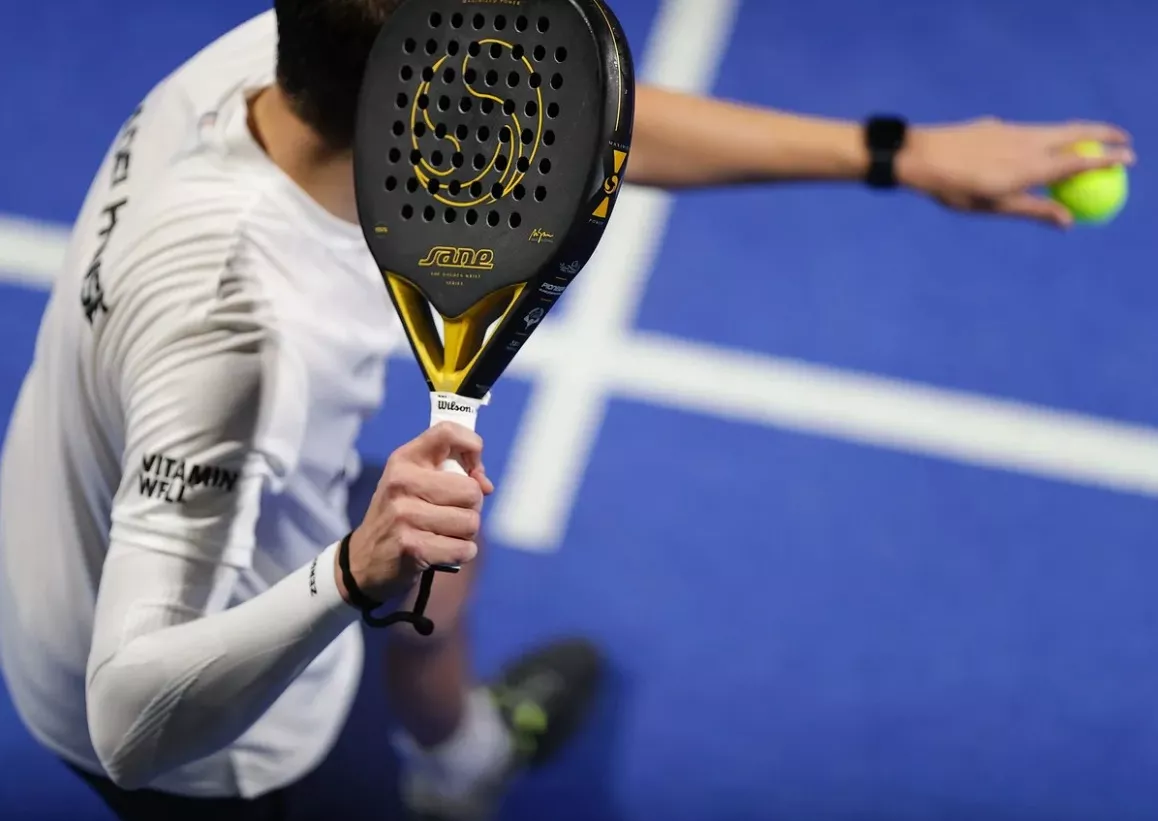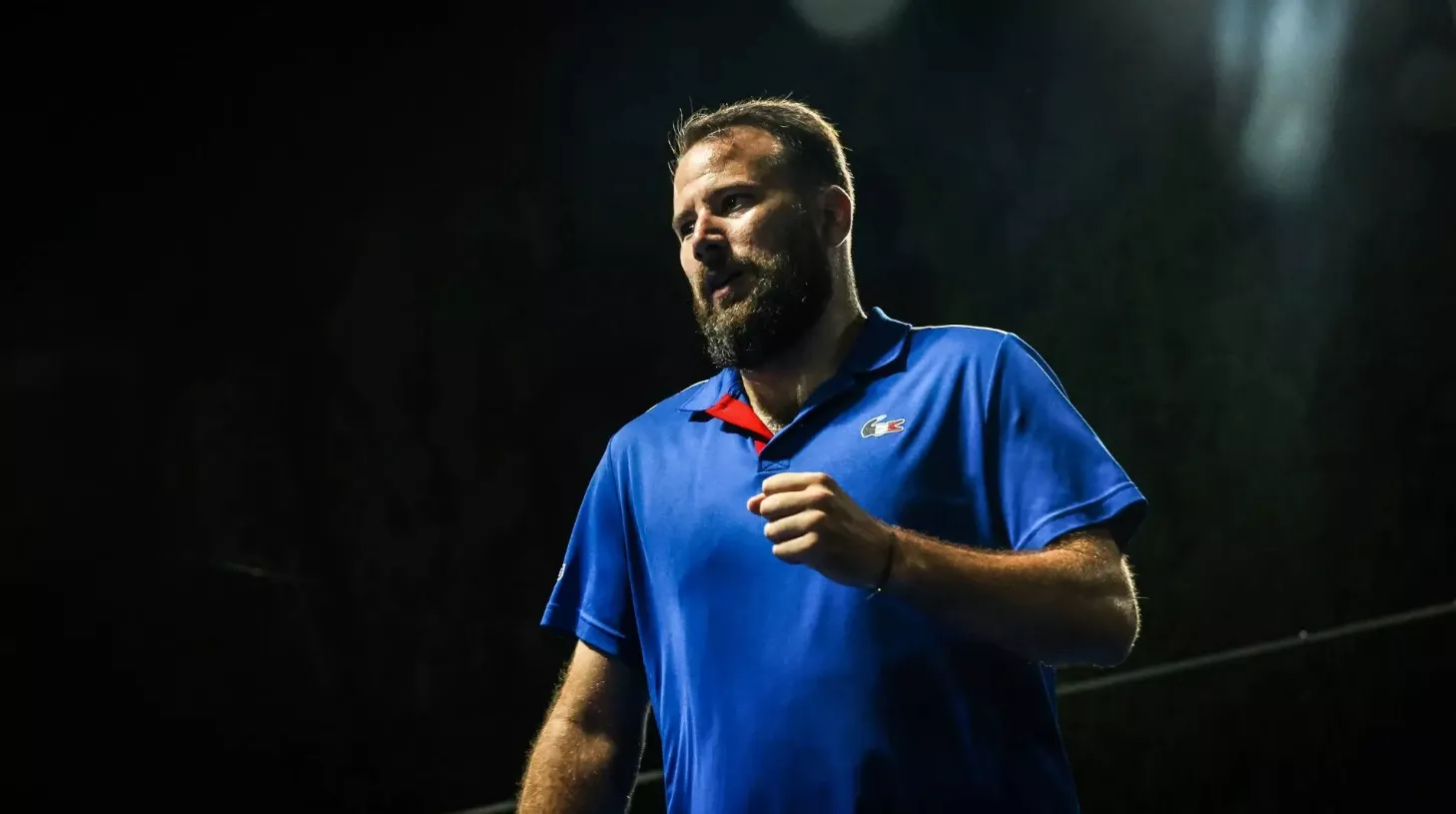
- Aquaboulevard
- La Défense
- Marnes La Coquette
- Versailles
- Padel

Adrien Maigret is one of France’s top padel players and trains at the Forest Hill Club in Marne-la-Coquette. He is also a tennis player, a tennis instructor since the age of 18, and the sports director at Carrières-sous-Poissy.
How did you discover padel?
It all started with a friend, Sébastien Ruiz, who called me in 2015 to tell me that he had discovered a great sport. That’s when I played for the first time.
The first game was tough! I tried to play “tennis,” but I quickly realized it wasn’t quite the same.
The second match was with Benjamin Tison. I remember that every match I played, I lost, systematically, to everyone! Since I’m competitive, it stung my pride, and I told myself I had to get good at it. So I started playing a lot, and I really became passionate about the sport.
What do you like about padel?
It’s a sport that complements tennis very well.
Playing tennis can be an asset for tennis, and playing padel can also be an asset for tennis.
It’s a sport that, when coming from tennis, requires you to rethink everything and start over. You have to embrace padel and forget about tennis.
It’s a new sport that really represents a fresh start.
How did you become a “pro” in padel?
I started playing regularly at Bois-d’Arcy with a group of friends, then I began competing with Julien, my brother, in P1000 tournaments. He couldn’t continue because he had his daughter, so I started playing with Benjamin Tison. We became the first French duo: in 2018, at the World Championship in Paraguay, we finished 4th.
Back then, padel wasn’t as popular as it is now, and sponsors were scarce, so it was difficult for me to follow Benjamin in Spain. We parted ways, and I continued my journey on the French circuit and a little internationally, as part of the French team.
Now, with the growth of the sport and the much better conditions, I’m increasingly considering making it my full-time career. Especially since it’s a sport with no real age limits, you can still be performing at a high level as you get older. Why not try to reach the top 100?
What do you enjoy about padel that you no longer (or never) had in tennis?
In padel, you get the essence of tennis, and having played tennis for 20 years is certainly beneficial for me. What I also really love is the atmosphere in tournaments. The fact that we play in pairs makes the encounters very enjoyable on a human level.
It’s a sport that focuses on “teamwork,” where you have great moments with others.
When we train, we then meet for drinks, to chat, and it brings back the sense of camaraderie from tennis 20 years ago.
In tennis, you compete alone, and that’s why I loved playing doubles. In padel, we get to experience those life moments together.
Also, the padel courts are smaller, so you’re right there in the action. The space to cover isn’t huge, which makes it physically accessible to everyone—kids, retirees… the range of people is wide.
That’s what’s great about padel: you meet and play with people from very different walks of life. There’s incredible diversity in this sport.
I’ve met people through padel that I might never have met otherwise. The connections are quite easy in this sport.
What advice would you give to padel players, whether beginners or experienced?
Padel is a very accessible sport.
You have to practice a lot, try to have fun, and most importantly, embrace the padel atmosphere. It’s a sport that can quickly become addictive!
If you’re a tennis player, you might develop some frustration because the technique is different. You have to let go and fully embrace padel. For those starting out, padel becomes great very quickly. You have fun fast, and you can start having rallies quickly.
The best way to improve is to practice and, of course, take lessons.
What future do you see for padel?
The fact that many famous athletes have taken up padel, that places like Roland Garros host tournaments, that clubs are investing more and more in padel, and that this sport is so accessible—it’s a huge strength—means it will continue to grow and expand.
In Spain, for example, padel is booming, particularly in terms of leisure, not necessarily competition. What makes this sport unique is the number of people playing it, and that number is only increasing.
You train at the Forest Hill Club in Marne-la-Coquette. Why did you choose this club?
The Marne-la-Coquette Club is less than 10 minutes from my home, so it’s very convenient! Frédéric Rogez, the racket sports manager at Forest Hill, took a chance on padel. He knew I was the best in the region. He had the desire to develop this sport, starting with 2 indoor courts, then 3, then 6, and now 12! This motivation makes you want to play there, the quality of play is very good, and the atmosphere is great.
I’ve seen the evolution of the club in terms of padel from the beginning until now: how the club has embraced padel, the evolution of the infrastructure, and the great moments we spend there playing padel.
Interview conducted by Caroline Pastorelli